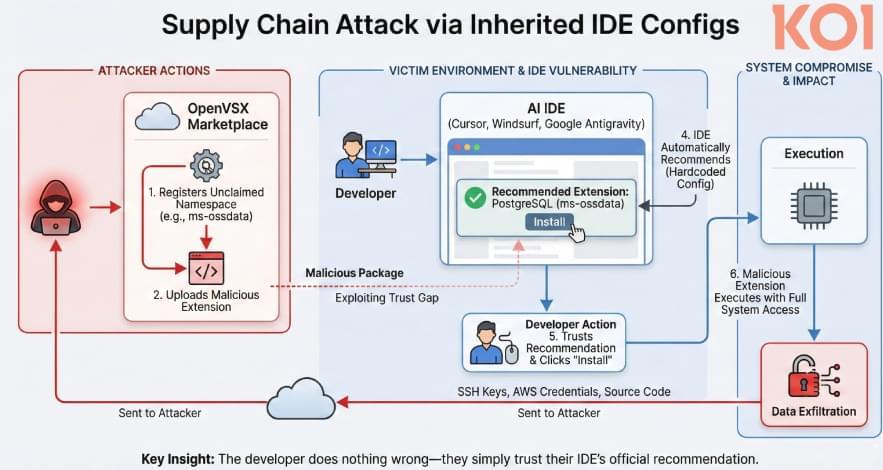The firm plans to deploy the technology at the same plant that was involved in a huge immigration raid in 2025.



While supercomputers excel at general-purpose tasks and large-scale simulations, quantum computers specialize in problems involving exponential combinations (e.g., materials science, drug discovery, AI optimization). However, quantum systems currently require conventional computers to operate—a dependency that will intensify as they scale from today’s 100+ qubits to thousands or millions. The project envisions supercomputers acting as the “pianists” that play the quantum “piano.”
Twelve user groups are currently testing both systems. The project’s primary objective is to provide concrete answers to “What can quantum computers do *now*?” rather than speculating about future capabilities, while demonstrating practical advantages of tightly integrated hybrid computing for real-world scientific and industrial applications.
A RIKEN-led project is developing system software to tightly integrate quantum computers with supercomputers.

The AI & quantum revolution: redefining research & development, manufacturing & technological exploration
By Chuck Brooks
By Chuck Brooks, president of Brooks Consulting International
We are at a crucial juncture in the annals of technical history. Throughout decades of writing, lecturing, teaching and consulting on emerging technologies, I have observed cycles of invention transform companies, governments and society. The current frontier—a synthesis of artificial intelligence and quantum technologies—is propelling that shift more rapidly and deeply than ever before. These technologies are transforming research methodologies and changing the architecture of production and discovery, presenting remarkable potential alongside significant constraints.
Research & development reconceived: accelerated, intelligent & solution-oriented.

Questions to inspire discussion.
Development & Deployment.
A: Alpameo offers open model weights, open-source inference scripts, simulation tools for edge case testing, and open datasets for training, enabling developers to adapt it into smaller runtime models or build reasoning-based evaluators and autolabeling systems.
Technical Architecture.
🧠 Q: What model architecture powers Alpamayo’s autonomous driving capabilities?
A: Alpameo uses 10B parameter models across five specialized functions: vision, language, action, reasoning, and trajectory generation, forming an integrated reasoning system for autonomous vehicles.
Despite NVIDIA’s advancements in self-driving technology, Tesla’s current lead in autonomous driving, production, and cost advantages are likely to keep it ahead of competitors, including NVIDIA, in the short term Questions to inspire discussion.
Platform Architecture & Business Model 🔧 Q: What type of product is Nvidia’s AI Pameo platform? A: Nvidia’s AI Pameo is a hardware and software toolset for OEMs requiring millions in non-recurring engineering fees and 70% gross margins on chips per vehicle, not a complete consumer solution like Tesla’s FSD. 🏭 Q: What does OEM implementation of Nvidia’s platform require? A: OEMs must have in-house AI talent to integrate, customize, certify, and handle warranty and liability for their specific vehicle models, as Nvidia provides the stack but not per-model engineering. 💰 Q: How does Tesla’s chip economics compare to Nvidia’s approach?
Questions to inspire discussion.
Commercial Availability & Pricing.
A: Unitree is reportedly eyeing a $7 billion IPO, reflecting growing investor confidence in humanoid robotics as a serious commercial category with clear trajectory toward public, industrial, and commercial space operations.
Technical Specifications & Capabilities.
🤸 Q: What physical capabilities does the Unitree H2 demonstrate and how is it engineered?
A: The H2 humanoid performs flying kicks, backflips, and sandbag strikes using 31 degrees of freedom (12 in shoulders, 6 per arm, 3 in torso, 7 per leg), showcasing agility for potential real-world applications.
Tesla’s RoboTaxi plan aims to revolutionize transportation by creating a global, autonomous, and integrated system that could potentially replace traditional car ownership and transform the way people move around.
Questions to inspire discussion.
Cost Optimization Strategy 🚗 Q: How can I minimize transportation costs using Tesla’s pricing tiers? A: Tesla’s AI-controlled pricing offers three tiers: $1 per mile for occasional trips, $60 per day for daily rentals, and $600 per month for leasing, with real-time switching between options based on your usage patterns to optimize costs. 💰 Q: How does AI-generated pricing adapt to my changing transportation needs? A: The system enables seamless switching between $1 per mile and $60 per day options similar to phone plans, with real-time adjustments that automatically select the most cost-effective tier based on current usage.

In future high-tech industries, such as high-speed optical computing for massive AI, quantum cryptographic communication, and ultra-high-resolution augmented reality (AR) displays, nanolasers—which process information using light—are gaining significant attention as core components for next-generation semiconductors.
A research team has proposed a new manufacturing technology capable of high-density placement of nanolasers on semiconductor chips, which process information in spaces thinner than a human hair.
A joint research team led by Professor Ji Tae Kim from the Department of Mechanical Engineering and Professor Junsuk Rho from POSTECH, has developed an ultra-fine 3D printing technology capable of creating “vertical nanolasers,” a key component for ultra-high-density optical integrated circuits.
